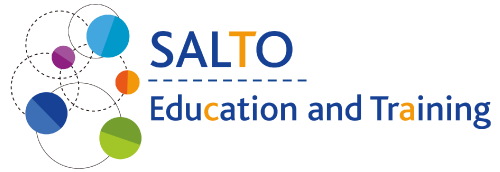Digital Inclusion – joining forces for an inclusive digital society
Main Info
TCA Description
This TCA focuses on digital inclusion and bridging the digital divide. As Europe rapidly digitalises, the aim is to ensure that no one is left behind. Therefore, bringing organisations together from across Europe to exchange knowledge, share best practices, and explore local solutions will contribute to support people facing barriers in the digital society.
Digital inclusion means ensuring that everyone can take part in today’s (digital) society. To make this possible, among many other things, basic skills and appropriate support are essential. This TCA places emphasis on a local approach: reaching and supporting people in familiar places such as the library, community centre, or local council. Working together on solutions and strengthening one another — that’s what this event is all about.
We can only succeed if we’re willing to ask for help and offer it, at every level and in every setting — both formal and informal. From researchers to caregivers, everyone has a role to play in building an inclusive digital society where help is always at hand. Together, we can turn individual efforts into collective impact, because building an inclusive digital society is a shared responsibility.
Awareness & inspiration:
• Participants recognise digital inequality and understand the importance of digital inclusion.
• Participants are aware of the added value of European cooperation in the field of digital inclusion.
• Participants get inspired about initiatives for improving digital inclusion through inspiring (Erasmus+) projects from different countries, for example about the Dutch concept of the local approach.
• Participants will better understand how to recognise digital needs in both formal and informal environments.
Knowledge and exchange:
• Participants learn about good practices, lessons learned, and inspiring new ideas and approaches
• Participants expand their European network of organisations and follow up on them.
• Participants know what support is available to apply for an Erasmus+ project.
Action & follow-up:
• Participants explore the possibilities to work together and further shape knowledge exchange (e.g. through projects in Erasmus+).
• Participants get inspired and find project partners for their possible Erasmus+ project.
• National Agencies learn about digital inclusion in a European perspective (ie Union of Skills) and explore opportunities to enhance cooperation on this topic.
PRIORITIES COVERED: DIGITAL TRANSFORMATION & INCLUSION AND DIVERSITY
KEY ACTIONS 1 AND 2
This event is a co-creation between the Dutch National Agency Erasmus+ Education & Training and the Digital Society Alliance (Alliantie Digitaal Samenleven).
The Alliantie Digitaal Samenleven (Digital Society Alliance), based in the Netherlands, collaborates with Dutch government bodies, social organisations and companies to promote digital inclusion. The goal is to ensure that everyone can participate in the digital society. A society in which everyone feels digitally capable, safe, and involved. The Digital Society Alliance is a programme within the Netherlands Institute for Sound and Vision (Nederlands Instituut voor Beeld & Geluid).
Participants will arrive at the hotel in Utrecht on Sunday 23 November. The programme will start on Monday 24 November, the Day of Digital Inclusion. This event will take place at the SOUND & VISION Museum in Hilversum. On 25 November, participants will go on site visits to different organisations in the Amsterdam-Utrecht area. Transport will be provided. Departure is foreseen for Wednesday 26 November.
Partners and participants
This TCA would like to bring together Adult Education professionals from Erasmus+ programme countries, such as:
• Stakeholders in the field of digital inclusion: national government bodies (local and regional public authorities and coordination bodies), municipalities, civil society organisations, knowledge & sciences centres, researchers and private companies.
• Organisations providing formal, non-formal and informal adult education (e.g. adult education schools and learning centres; civil society, non-governmental and volunteering organisations; counselling centres, libraries, museums, cultural, community and social centres; as well as other organisations working for persons with disabilities, senior citizens, persons at the risk of poverty or social exclusion, etc.).
Representatives from Adult Education (AE) sector - current beneficiaries as well as newcomers in the Erasmus+ programme. This can be:
• Policy advisors or professionals working in areas related to digital inclusion (ie “everyone should be able to access (digital) government services”).
• Policy makers and professionals that are in direct contact with the target group,
• Professionals in civil society organisations that support the target group,
• Employees of educational institutes, this can be either professionals or scientists in the field of digital inclusion.
Pending booked places
Accepted places


